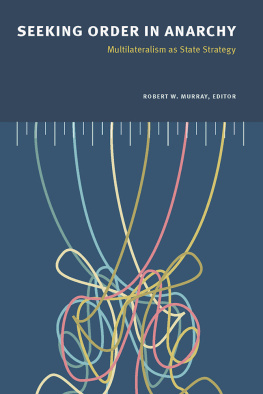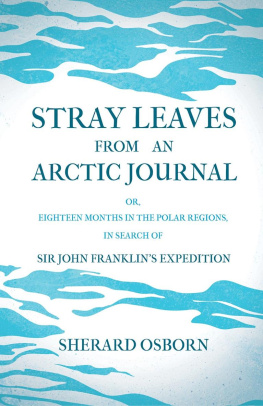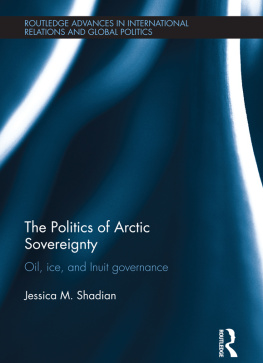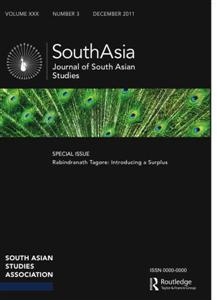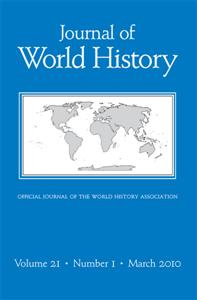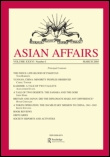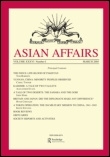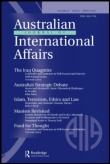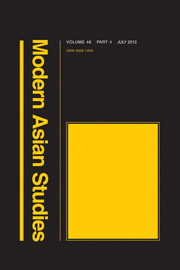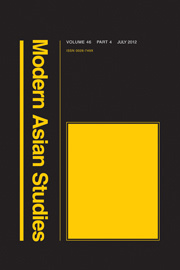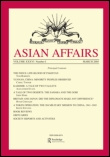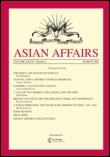The Polar Journal
Vol. 2, No. 1, June 2012, 720
Arctic politics in the emerging multipolar system: challenges and consequences
Robert W. Murray*
Department of Political Science, University of Alberta, Canada
The quest for Arctic territory has been a subject of intense scrutiny for scholars and policymakers in recent years. At a time when many international institutions and non-governmental organizations are focused on human-centric variables of global politics, the security environment in the circumpolar region appears to be one of the only areas in which interstate tension and conict may arise in the traditional sense. The competing claims being made over Arctic territory by states, including at least two great powers, and governance structures combine an unusual variety of legal, normative and sovereignty issues but, even so, states appear willing to use militarism and arms racing behaviour as a possible means for ensuring their claims are taken seriously. To date, no hard power conict has taken place over Arctic territorial claims, but it is also important to bear in mind that the recent intrigue in the region has taken place in the unipolar moment of American hegemony. This article takes a systemic approach to studying the security competition in the high north and argues that, while national interests have yet to lead to intense conict or the use of force to date, the impending shift from a unipolar to a multipolar system will profoundly affect how states pursue their Arctic claims.
Keywords: great power politics; systemic structure; arms racing; polarity; hege- mony
Introduction
It is no overstatement to say that the end of the Cold War was one of the most important events in recent world history. Scholars from many areas of study have used the fall of the Soviet Union as a starting point to explain shifts in security, globalization, humanitarianism and institutional integration, all of which played important roles in world affairs in the immediate post-Cold War era. Since 1991, explanatory models for international and global politics have broadened their scope to include variables such as individual preferences, capitalist oppression, ideational construction, environmentalism, gender and sexual politics, and discursive power to levels previously unforeseen throughout the Cold War years. As such, we now see the world as a far more complex and nefarious arena in which power and dominance are exercised each day.
At the systemic level, the fall of the Soviet Union equated to nothing short of a monumental shift in the way states would make foreign and defence strategy. For 50 years, the bipolar system was dominated by two superpowers constantly
competing and building arms in an effort to balance one another. The end of the Cold War signalled a major shift in systemic arrangement, as the system went from being bipolar to the world entering what was often referred to as the unipolar moment. The era of unipolarity and American hegemony in the international system has been marked by stability in an interstate sense, and the realignment of various spheres of inuence in the wake of the Soviet Unions demise.
Far from being just a theoretical notion, the unipolar moment has also provided states with an environment in which to pursue their national self-interest where the likelihood of conict is decreased and great power security competition has been minimized. As such, new areas of foreign affairs and defence strategy have become far more important than they could have been throughout the bipolar con- strained Cold War years. One of the most notable examples in this regard has been the increased desire for territorial protection and extension in the Arctic region. In an era of state preoccupation with humanitarianism, terrorism and economic reces- sion, it is being suggested by some observers that the Arctic has become the pri- mary stage through which states, both great and minor in power, can pursue their self-interest in a way that combines soft power cooperation through bodies of gov- ernance with hard power and military build-up.
As things presently stand, there are a variety of nations and institutions all seek- ing to claim governing authority over different parts of the circumpolar region. Nations making claims to parts of the Arctic Ocean or other northern waters include Canada, Russia, the United States, Norway, Iceland and Denmark/Greenland. On the institutional side, Arctic governance has been debated and dened by bodies such as the United Nations, the European Union, the United Nations Convention on the Law of the Sea (UNCLOS) and the Arctic Council. To date, no clear resolution to competing claims is in sight, and in some cases the situation is on the verge of becoming far more competitive as nations such as Russia have resorted to asserting possible military solutions to contested Arctic issues to bolster their declarations.
It is important to note the increased levels of interest over Arctic relations between states, but, on this point, little attention has been given to the inuence of the international system over this situation. If the unipolar moment has been dened as an era of relative stability and diplomatic coexistence, and tensions in the Arctic are already on the rise, what is to happen when the multipolar system nally emerges in the near future?
Since 2005, the status of the United States as systemic hegemon has been in decline due to economic, military and political strains placed on American power
capabilities throughout the Bush era and beyond. This decrease in relative power
preponderance has been even further exacerbated by the economic recession starting in 2008 and the nations inability to stabilize its markets. As such, the predictions of those like Christopher Layne and John Mearsheimer are on the verge of coming to fruition, in that the unipolar moment is about to end. New great powers are ris- ing, the United States is no longer able to prevent these nations from balancing their power, and the once obvious prevalence of American power is far murkier than it was a decade ago. As the multipolar era becomes increasingly likely, one
Krauthammer, Unipolar Moment, 2333.
Wohlforth, Stability of a Unipolar World, 7.
For more on Arctic governance, see Young, Governing the Arctic, 915.
See, for instance, Layne, Unipolar Illusion, 551; Mearsheimer, Back to the Future.
must ponder the effects this shift might have on state foreign and defence strategy- making, especially towards the Arctic region.
To date, though its relative power position has declined signicantly in recent years, the United States remains the hegemon of the international system, but it is
contended here that such status is soon to evaporate. In this context, this article
argues that the emergence of a multipolar systemic arrangement is very likely to increase security competition in the system as a whole, and the Arctic will be at the epicentre of such conict. To lend support to this hypothesis, an examination of the impending shift from unipolarity to multipolarity will be made, as will an account of current security dynamics in the circumpolar region. The article concludes with a stark warning that without some kind of real action towards settling competing Arctic claims, it will be left to states to secure their own territorial assertions through hard power and forceful means.
The system is unipolar for now
In order to evaluate the polarity of the international system in a given historical per- iod, one must identify the hierarchy of power in terms of the number of super or great powers dominating international outcomes. Counting great or super powers can be somewhat difcult in contemporary international relations, as scholars have begun to expand the notions of power and capabilities, but the clearest guideline for being able to identify great powers is through determining capabilities. The rea- son it is essential to understand the great powers in international relations is that they, above all other states, institutions, non-state actors and ideational forces, are responsible for the daily conduct of behaviour in the international system, and they have been historically accountable for substantial alterations to power distribution since the 1648 Peace of Westphalia.
Next page

